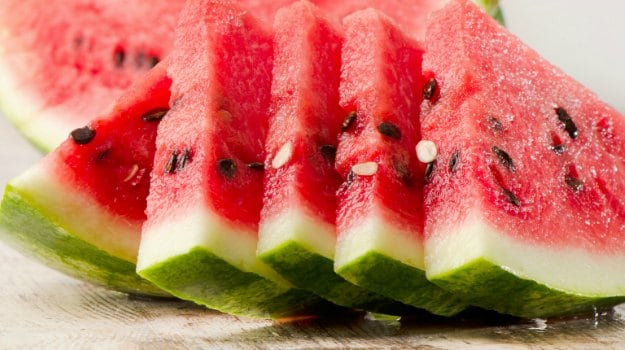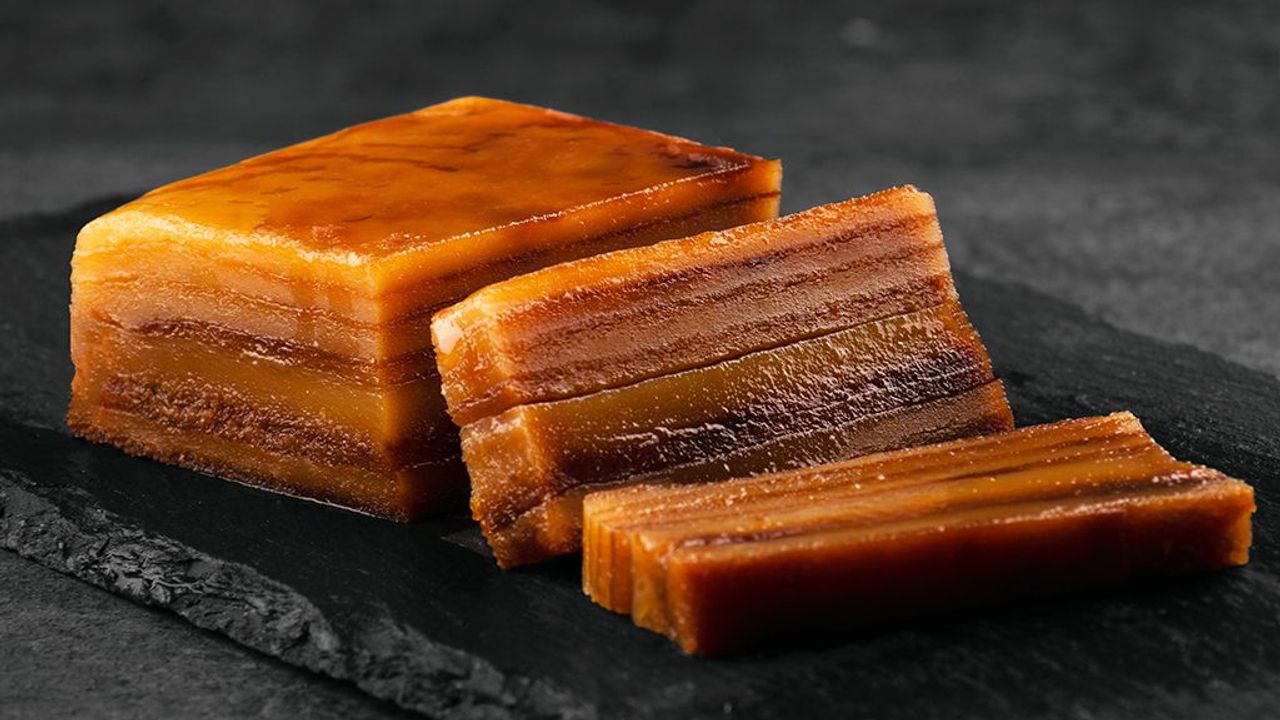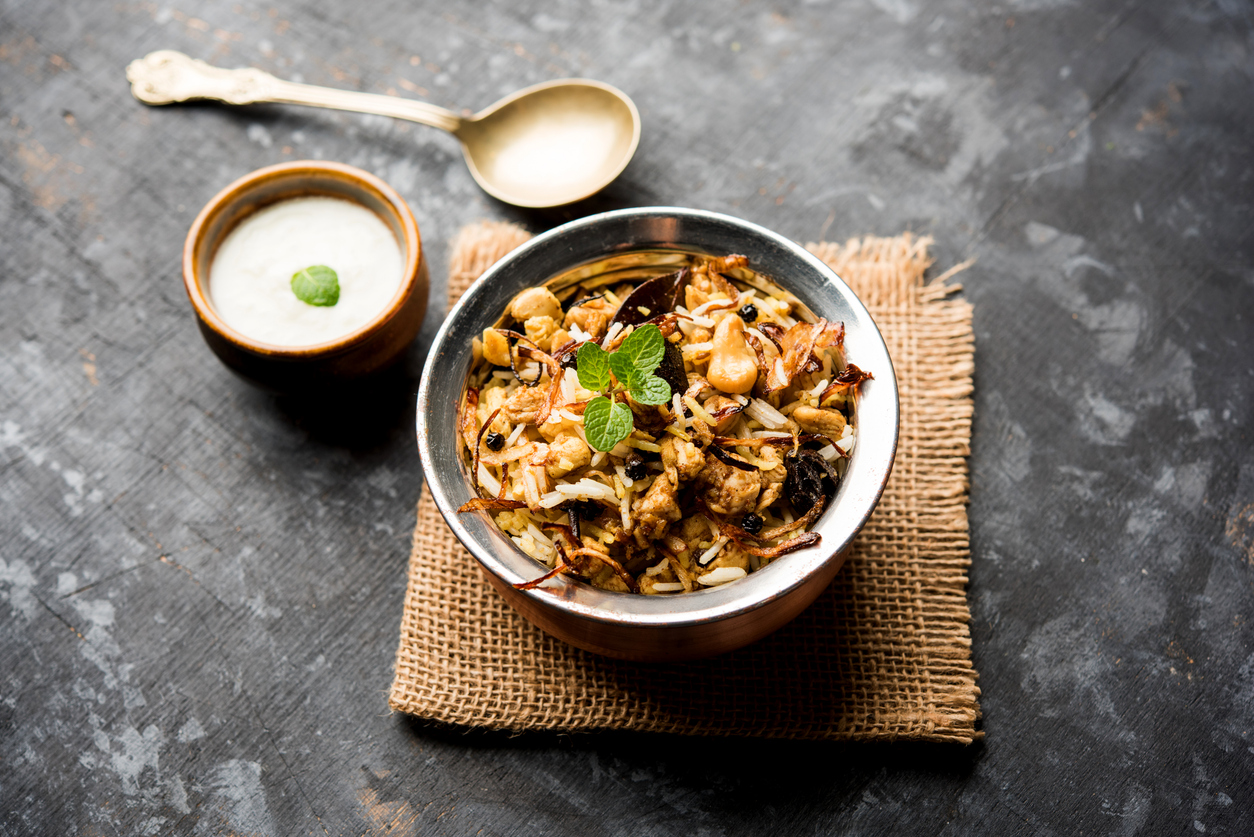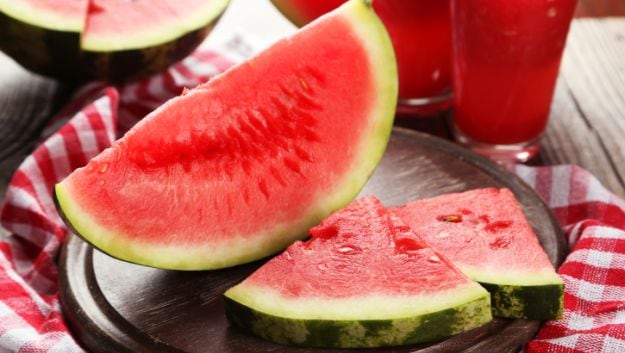Some of the best things about summer – chilling out with popsicles, slurping an iced drink and diving into a sweet, juicy watermelon. When I feel like I’m melting into a puddle, I turn to this refreshing summer fruit. Watermelons are delicious on their own. I love them in cocktails and salads, but there’s something more comforting about letting the juice drip down your lips and spitting the seeds as far as you can.First, a confession. As a child, I would hesitate to sink into a slice of watermelon fearing that if I swallowed the seed an enormous fruit would bud inside me. I've never been sure why we were told so or where this tall tale came from, but I fell for it. Of course it wasn't true and I grew up to love the intense burst of juiciness. Yet, for many of us those slippery seeds are quite a distraction. No surprises there. Taking the time to fuss over every seed (some of them would just refuse to part) and having to wait till you pluck them all is a pity. Some fear that these seeds may contain harmful chemicals and therefore, must be avoided. This isn't true either. If you’d know how healthy they are, perhaps, they wouldn't bother you.Here’s a super seed that you're not eating and a secret you didn't know. Watermelon seeds shouldn't be tossed away, instead they should be eaten. “Watermelon seeds and also others like melon seeds and flax seeds are rich in micro-nutrients like selenium, potassium, copper and zinc which you may not derive from your daily diet in adequate quantities. They can be sun-dried and eaten as a snack or can also be powdered. They’re good for your heart, boost immunity and keep blood sugar levels in check. You can add it to your diet as a health supplement in combination with others seeds. I’d suggest about 1/2 of a teaspoon twice a week,” says Dr. Simran Saini, Dietitian at Fortis Hospital in New Delhi.
These protein-packed treasures with a distinct nutty flavor could be the first snack you reach for at your desk, between meals or even when you’re bored – if you give them a chance. “Watermelon seeds are also a valuable source of macro-nutrients like vitamin B, protein and the healthy fats. Most seeds have similar benefits, so you don’t need to spend on buying packaged ones like flax seeds or chia seeds, use sun-dried watermelon seeds instead. They make for an inexpensive, fun snack and at the same time are healthy,” suggests Dr. Ritika Samaddar, Nutritionist at Max Healthcare in New Delhi.
Watermelon seed oil is extracted from cold-pressing sun dried seeds and is quite popular in West Africa where it is called Ootanga or Kalahari oil. It is like a miracle liquid for all your hair and skin troubles. Due to its light texture and excellent moisturizing properties, it is often used in baby oils. It is rich in vitamins, minerals and essential fatty acids (EFAs). The high content of EFAs eliminates sebum, dirt and grease that build up in the pores of your skin and create acne.(Also read: 5 Refreshing Ways to Use Watermelons)
Roasting Versus SproutingDr. Simran Saini suggests that you shouldn't roast them. Most nutrients are destroyed on exposure to heat which can change the chemical composition of these seeds. Flax seeds are one of the few seeds that may retain their nutrient density, for the others it is best to avoid roasting.To make the most of them, watermelon seeds should be sprouted and shelled. Sprouting is a process where the seeds are soaked and germinated. Sprouted seeds, nuts or legumes are known to be higher in nutrition than others. Soaking, fermenting and sprouting also breaks down gluten and other proteins that are hard to digest into simple compounds that are easily absorbed by the body. Any food in its fermented form is most nutritious. It is easier to sprout watermelon seeds along with others like green mung beans, sesame seeds or black channa rather than sprouting them individually which can be a bit tricky.(Also read: 6 Fermented Foods That You Should Add to Your Diet)How to Use Watermelon SeedsMake sure you clean the seeds and rinse them thoroughly. Let them dry outdoors under direct sunlight for about a week before you use them.

1. Eat them straight out of your palm as a snack or mix them with nuts. They taste somewhat like sunflower seeds, but less nutty.2. Sprinkle them over salads or use them with fried rice or mix it in yogurt or soups.3. You can use them in sandwiches. These seeds in sauces, dips or spreads can add much depth.4. Dried watermelon seeds can be powdered and used in smoothies or tea. Watermelon seed tea
is used in Chinese Naturopathic medicine for detoxification.5. Bake with them. Use them in breads, muffins, cookies, crackers or make granola bars with nuts.(Also read: 7 Power Packed Seeds for a Slimmer, Fitter and Healthier You)These little seeds can make your meals more filling and satisfying without weighing you down. Give them some love.
These protein-packed treasures with a distinct nutty flavor could be the first snack you reach for at your desk, between meals or even when you’re bored – if you give them a chance. “Watermelon seeds are also a valuable source of macro-nutrients like vitamin B, protein and the healthy fats. Most seeds have similar benefits, so you don’t need to spend on buying packaged ones like flax seeds or chia seeds, use sun-dried watermelon seeds instead. They make for an inexpensive, fun snack and at the same time are healthy,” suggests Dr. Ritika Samaddar, Nutritionist at Max Healthcare in New Delhi.
Watermelon seed oil is extracted from cold-pressing sun dried seeds and is quite popular in West Africa where it is called Ootanga or Kalahari oil. It is like a miracle liquid for all your hair and skin troubles. Due to its light texture and excellent moisturizing properties, it is often used in baby oils. It is rich in vitamins, minerals and essential fatty acids (EFAs). The high content of EFAs eliminates sebum, dirt and grease that build up in the pores of your skin and create acne.(Also read: 5 Refreshing Ways to Use Watermelons)
Roasting Versus SproutingDr. Simran Saini suggests that you shouldn't roast them. Most nutrients are destroyed on exposure to heat which can change the chemical composition of these seeds. Flax seeds are one of the few seeds that may retain their nutrient density, for the others it is best to avoid roasting.To make the most of them, watermelon seeds should be sprouted and shelled. Sprouting is a process where the seeds are soaked and germinated. Sprouted seeds, nuts or legumes are known to be higher in nutrition than others. Soaking, fermenting and sprouting also breaks down gluten and other proteins that are hard to digest into simple compounds that are easily absorbed by the body. Any food in its fermented form is most nutritious. It is easier to sprout watermelon seeds along with others like green mung beans, sesame seeds or black channa rather than sprouting them individually which can be a bit tricky.(Also read: 6 Fermented Foods That You Should Add to Your Diet)How to Use Watermelon SeedsMake sure you clean the seeds and rinse them thoroughly. Let them dry outdoors under direct sunlight for about a week before you use them.

1. Eat them straight out of your palm as a snack or mix them with nuts. They taste somewhat like sunflower seeds, but less nutty.2. Sprinkle them over salads or use them with fried rice or mix it in yogurt or soups.3. You can use them in sandwiches. These seeds in sauces, dips or spreads can add much depth.4. Dried watermelon seeds can be powdered and used in smoothies or tea. Watermelon seed tea
is used in Chinese Naturopathic medicine for detoxification.5. Bake with them. Use them in breads, muffins, cookies, crackers or make granola bars with nuts.(Also read: 7 Power Packed Seeds for a Slimmer, Fitter and Healthier You)These little seeds can make your meals more filling and satisfying without weighing you down. Give them some love.
Advertisement













